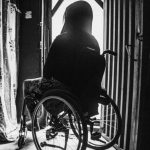Ismaila Alaka is a commercial intrastate driver in Oyo state. He drove a Prime Progress reporter and five other passengers from Oyo to Ibadan on Monday morning. He wouldn’t stop convincing everyone that he had heard from reliable sources that only a military takeover could salvage the country from its sorry state.
His conviction for the narrative, more than once, plunged his rackety Toyota Corolla car into the deep potholes on the highway and sank into the minds of half of the passengers.
‘You don’t know that if they (the military) take over, they will help us to eradicate all of these selfish politicians who don’t care about us. We have tried their democracy for few years now; let’s go back to the military regime too and try it out,’ the visibly dissatisfied Alaka, who looks like he is in his forties, blurted out in the Yoruba language.
According to him, a military government won’t pack up politicians and aides that will pollute society with expensive cars and lifestyles as the current civilian governments. Therefore, the time is now for ordinary masses to “take back their country from gluttons using the soldiers.”
Facts indicate that even though military regimes come withtiny benefits, theirdangers are too destructive to be ignored, encouraged or allowed to dominate the country’s public discourse.
And for a system that is not new to the country’s history, the tales from the first coup in 1966 to the last regime in 1999 were almost unpalatable. Why, then, are some Nigerians fanning its embers?
Coups here and there in Africa
Gabon’s President Ali Bongo Ondimba is the latest ousted from office. He relinquished his powers unpreparedly on Wednesday when army officers announced they had taken over power and annulled the election that he purportedly won.
The news is a shock for many, considering that the continent has yet to recoverfrom the July 26, 2023, in Niger, where President Mohamed Bazoum was ousted.
More depressingly, since 2020, when the global outlook pushed for representative democracy and mitigating international global emergencies (such as coronavirus), in Mali (since August 2020), Chad (since April 2021), Guinea (since September 2021), Sudan (since October 2021), and Burkina Faso (since January 2022), officers in uniform have truncated civilian rule in the countries.
When Niger and now Gabon jumped on the bandwagon, many Nigerians cultivated the notion that if it were a flawed system, many countries wouldn’t be succumbing to it in the last three years.
Social media has become the global surrogate home and the eighth continent.
However, in Nigeria,84%of those aged 18 to 29 actively use at least one social media network in 2023. Considering that the most recent coup in the country occurred in 1993(30 years ago), the vast majority have no lived experiences of the nature of coups and military regimes.
These statistics show that the growing sympathies towards military takeover in Nigeria on social media are fueled mainly by those who have never experienced military regimes.
And there are political undertones
One would think that the insinuations would start and end on social media until the news that the Military High Command disclosedplots to instigate members of the Armed Forces of the country to topple democratic rule.
Regardless of any observer’s position, facts show that a military-initiated change of government in the country is being mooted even when the country’s armed forces think the country is better the way it is.
To many Nigerians, the international community, the United Nations, the Economic Community of West African States and the Commonwealth are green snakes tormenting Nigeria’s fortune under green grasses.
For such persons, once the military takes over power and these foreign aides dissociate from Nigeria, the country will find homegrown solutions to its problems and develop in no time.
Orientation is key now
There are many Ismaila Alakas on the Nigerian streets, social media and the political arena, and to cure this ignorance, enlightened Nigerians must begin to orientate them that a military government will move the country away from freedom to a country ruled by boots, guns and decrees, not to be challenged.
The country’s orientation agencies, civil society organisations and NGOs should begin using social media and physical outreach to communicate that coups are not the way to the much-needed change in Africa’s democratic systems and Nigeria’s prosperity.
They should kick off the education of children and youths on the dangers of military government, ranging from imminent civil wars, mutiny and disrespect for the rights of persons, among others, that coup apologists are beginning to glamourise
People who experienced firsthand what the military did to their families, businesses and lives should shoulder the courage to share their experiences so that every Nigerian can learn.





